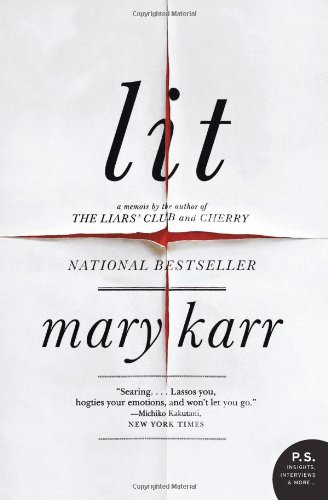“Certain events stay Technicolor.”

KARR: I’d warned my mother and sister in advance that I wanted to cover the period of Mother’s psychotic break and her divorce from Daddy. She’d inherited a sum of cash that was vast by our standards, and she bought a bar and married the bartender — her sixth husband. She was an outlaw, and really didn’t give a rat’s ass what the neighbors thought. She drank hard and packed a pistol. When I tested the waters about doing a memoir of the period, she told me, Hell, go for it. She and my sister probably figured nobody’d read the book but me and whomever I was sleeping with. Also, my mother was a portrait painter. She understood point of view. My sister, who’s a very sophisticated reader, signed off too. For our people to do anything to generate income that won’t land you in prison, it’s a win.
I came across this 2009 Paris Review interview with Mary Karr this morning and spent some time with it; her thoughts on prayer and religion, in particular, were strong and clear, and I loved the way she openly discussed money as a motivation for her work, commerce being a completely underrated motivator, in my humble opinion.
The whole interview is full of her unique idioms (“Being a famous writer was a little like being a famous cocktail waitress — nobody dressed in diamonds,” for one, and when she says “Both books had minor characters out the wazoo” I lol-ed for real), but her point about which memories stay with you was my favorite:
Our little cracker box of a house could give you the adrenaline rush of fear, which means more frames of memory per second. Emotional memories are stored deep in the snake brain, which is probably why aphasics in nursing homes often cuss so much — that language doesn’t erode in a stroke.
“More frames of memory per second:” yes, that is exactly what a rush of fear feels like.
Read the interview here and report back with your own favorite idiom.